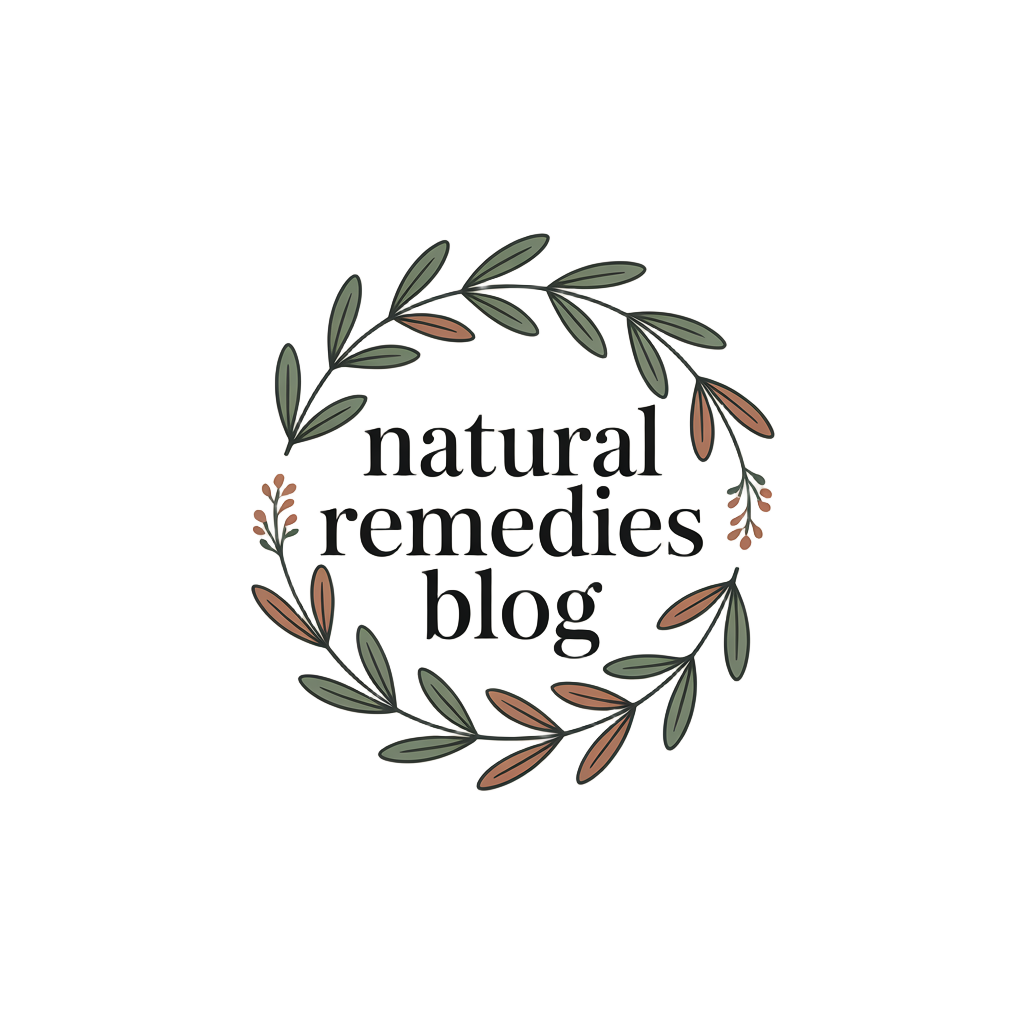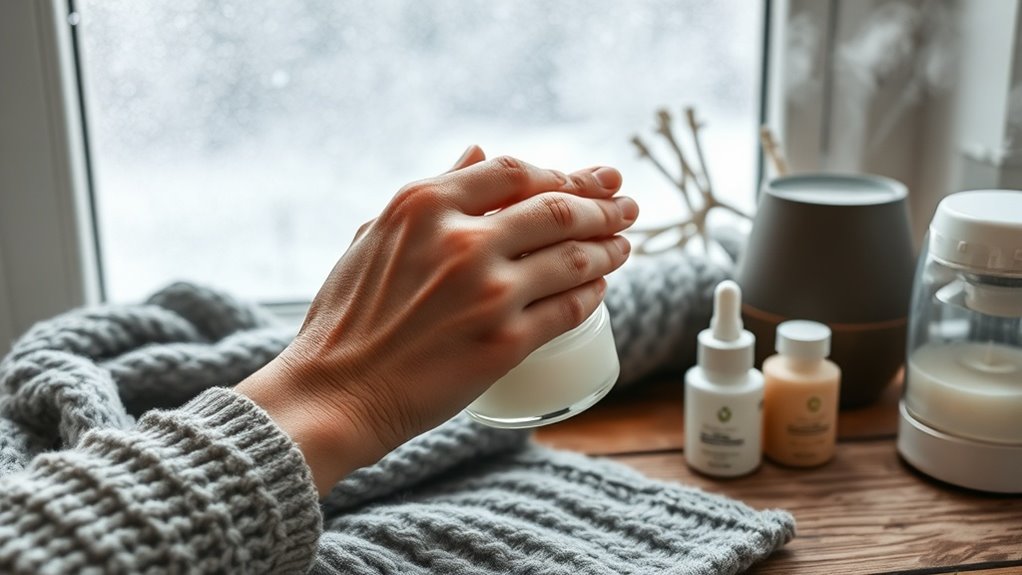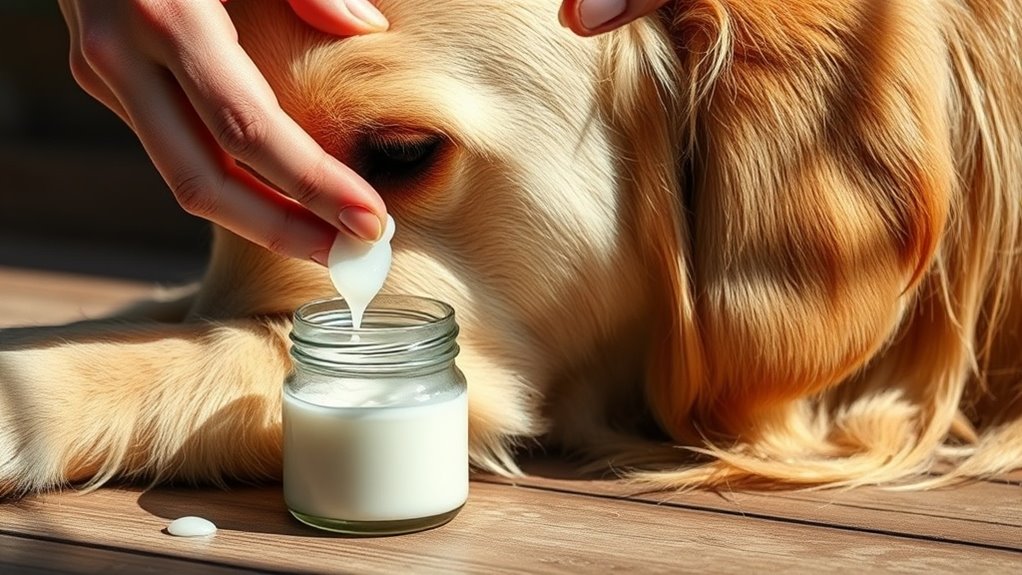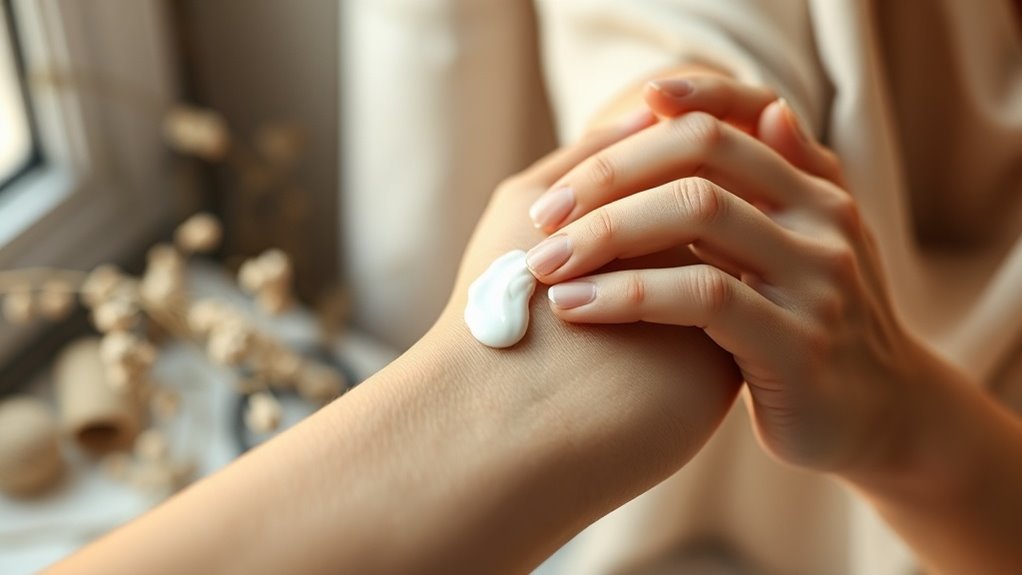Cold Remedies That Promise Fast Relief You Didn’t Know!
You’ll find fast cold relief through powerful natural remedies that target symptoms directly. Start with elderberry syrup to boost immunity, use eucalyptus oil for congestion, and sip on ginger-turmeric tea to fight inflammation. Gargle with warm salt water to soothe your throat, and don’t forget to load up on vitamin C-rich foods like red peppers and guava. These lesser-known solutions offer a natural path to feeling better, with even more remedies waiting to be discovered.
Key Takeaways
-
Manuka honey mixed with warm water and a pinch of turmeric creates a powerful antiviral and antibacterial drink for immediate throat relief.
-
Steam inhalation with eucalyptus oil and peppermint oil combined provides instant decongestion and improved breathing within minutes.
-
Alternate nostril breathing technique, combined with proper hydration, can clear sinuses and reduce congestion in under 10 minutes.
-
Capsaicin from hot peppers or wasabi provides immediate sinus clearing when added to bone broth or warm soup.
-
A warm saltwater gargle with 1/4 teaspoon salt in 8 ounces water reduces throat inflammation and pain within 30 minutes.
Understanding the Common Cold and Its Symptoms
Misery – that’s how most people describe the common cold, a viral infection that affects your upper respiratory tract.
You’re not alone in your search for fast relief, as most people catch two to three colds every year. When you’re feeling under the weather, you’ll notice the telltale signs: a stuffy or runny nose, sore throat, coughing, and mild body aches.
While there’s no cure for the common cold, you can find relief through various cold remedies that target specific symptoms.
The key is recognizing your symptoms early, as starting treatment within the first 24-48 hours gives you the best chance for fast improvement.
Understanding how the cold virus affects your body helps you choose the most effective treatments and get back to feeling like yourself sooner.
Ancient Herbal Remedies Making a Comeback
Long before modern medicine offered cold relief in pill form, our ancestors relied on powerful herbal remedies that are now gaining renewed attention from both researchers and the public.
You’ll find these time-tested treatments in many modern homes, where people are rediscovering remedies like elderberry syrup, which boosts immune function and reduces cold duration.
Ginger and turmeric, prized in ancient Asian medicine, are making their way into daily wellness routines. You can easily brew these roots into a soothing tea that fights inflammation and eases congestion.
Another comeback kid is thyme, which you’ll recognize from grandmother’s kitchen – it’s now proven to have powerful antimicrobial properties.
Even honey, especially Manuka, has found its place in modern cold treatment, backed by research showing its effectiveness against sore throats and coughs.
Power-Packed Foods That Fight Cold Viruses
The right foods can supercharge your body’s natural defenses against cold viruses. You’ll want to load up on citrus fruits like oranges, grapefruits, and lemons for their vitamin C content.
Berries pack a powerful punch with antioxidants that boost immunity, while garlic’s allicin compound helps fight infections.
Don’t forget about zinc-rich foods like pumpkin seeds and lean meats – they’re essential for immune function. You can also strengthen your defenses with probiotic-rich yogurt and fermented foods.
Add some ginger to your tea or soup for its anti-inflammatory properties, and include mushrooms in your meals for their immune-enhancing beta-glucans.
When you’re feeling under the weather, bone broth provides hydration and nutrients that help your body recover faster.
Essential Oils for Cold Relief
Natural healing extends beyond food to powerful aromatherapy options. You’ll find that essential oils can be your secret weapon against stubborn cold symptoms, offering relief when you need it most.
Eucalyptus oil works wonders for clearing congested airways – just add a few drops to hot water for steam inhalation. Peppermint oil’s cooling effect helps ease breathing and reduces fever, while tea tree oil’s antimicrobial properties fight infection.
You can’t go wrong with lavender oil before bed, as it promotes restful sleep and reduces inflammation.
For best results, combine these oils with a carrier oil like coconut or jojoba. Apply the mixture to your chest, temples, or feet, or use them in a diffuser.
Remember to choose high-quality, pure oils from trusted sources to guarantee you’re getting the full therapeutic benefits.
Traditional Chinese Medicine Solutions
While Western medicine often focuses on treating symptoms, Traditional Chinese Medicine (TCM) takes a holistic approach to fighting colds by restoring your body’s natural balance.
You’ll find relief through time-tested remedies like ginger tea with honey, which warms your body and boosts immunity.
TCM practitioners recommend acupuncture to unblock qi and stimulate your immune system. You can also try Chinese herbs like astragalus and elderberry to strengthen your body’s defenses.
Another popular remedy is drinking hot chrysanthemum tea, which helps reduce fever and soothe sore throats.
For congestion, try therapeutic breathing exercises combined with gentle self-massage on specific pressure points around your nose and temples.
These ancient practices don’t just mask symptoms – they work with your body’s natural healing abilities to help you recover faster.
The Science Behind Steam Therapy
Moving from ancient Chinese practices to modern therapeutic techniques, steam therapy stands on solid scientific ground.
When you inhale warm, moist air, it triggers multiple healing responses in your respiratory system. Your nasal passages and airways expand, while mucus membranes become more fluid, helping you breathe easier.
You’ll find that steam’s temperature effectively disrupts the environment where cold viruses thrive. The warmth also boosts blood circulation to your nasal passages, enabling your immune cells to better fight the infection.
For best results, you’ll want to create a tent with a towel over your head while leaning over a bowl of steaming water. Add a few drops of eucalyptus oil, and you’ve got a powerful combination that’ll help clear congestion and soothe irritated tissues.
Surprising Benefits of Honey Combinations
Beyond its traditional use as a sweetener, honey becomes even more potent when paired with specific ingredients.
You’ll find remarkable relief by combining honey with fresh lemon juice, which adds vitamin C and helps soothe your scratchy throat. For an immunity boost, mix honey with warming spices like cinnamon and ginger – you’re creating a powerful antioxidant blend that fights cold symptoms.
Want to amplify honey’s antimicrobial properties? Try adding a few drops of apple cider vinegar. This combo creates a natural expectorant that’ll help clear congestion.
For nighttime relief, stir honey into chamomile tea with a pinch of turmeric. You’re not just treating symptoms; you’re supporting your body’s natural healing process with ingredients trusted by wellness communities worldwide.
Healing Spices in Your Kitchen Cabinet
Inside your kitchen cabinet lies an arsenal of powerful cold-fighting spices that serve as natural remedies.
You’ll find turmeric, with its anti-inflammatory curcumin that helps reduce congestion and boost immunity.
Ginger, your warming ally, soothes sore throats and eases nausea while fighting viral infections.
Don’t overlook cinnamon’s ability to tackle bacteria and warm your system from within.
When you’re feeling under the weather, reach for cayenne pepper to clear your sinuses and boost circulation.
Combine it with garlic, nature’s antibiotic, for an extra punch against infections.
Black pepper isn’t just for seasoning – it enhances nutrient absorption and helps break up mucus.
You’ve got these healing heroes right at your fingertips, ready to support your body’s natural defenses.
Natural Decongestants That Work Fast
When congestion strikes, several natural decongestants can provide quick relief without the side effects of over-the-counter medications.
You’ll find that peppermint oil, when inhaled through steam or applied diluted to your chest, opens airways within minutes. A neti pot with warm salt water helps flush out mucus and allergens, giving you immediate breathing relief.
You can also try apple cider vinegar’s potent decongestant properties by adding two tablespoons to hot water with honey. For quick results, capsaicin from hot peppers or wasabi will clear your sinuses instantly.
Want a gentler option? Eucalyptus oil in your shower or humidifier works wonders while you sleep. These natural solutions aren’t just effective – they’re likely already in your home, ready to help you breathe easier.
Hydration Strategies for Quick Recovery
Staying properly hydrated is essential for fighting off a cold and speeding up recovery time. You’ll want to drink at least 8-10 glasses of water daily, but there’s more to smart hydration than just plain water.
Start your day with warm lemon water to boost your immune system and break up congestion. Throughout the day, sip on herbal teas like elderberry, ginger, or echinacea – they’re packed with antioxidants that’ll help you bounce back faster.
You can also try coconut water for natural electrolytes or bone broth for added minerals and immune support.
Remember to avoid dehydrating drinks like alcohol and caffeine when you’re under the weather. Instead, stick to hydrating options that’ll help your body flush out toxins and restore your energy levels quickly.
Sleep Techniques to Boost Immune Response
Although fighting a cold can feel exhausting, quality sleep serves as your body’s most powerful weapon for recovery.
You’ll want to create the perfect sleep environment by keeping your bedroom cool, dark, and quiet. Prop your head up with an extra pillow to help drain congestion and make breathing easier.
Time your rest strategically by going to bed early and aiming for 8-9 hours of sleep. If you’re having trouble drifting off, try taking a warm bath before bedtime or sipping chamomile tea.
You can also use a humidifier to maintain ideal air moisture, which helps your immune system function better while you rest. Remember to silence your phone and avoid screens an hour before bed – your immune system will thank you for these uninterrupted hours of healing sleep.
Lesser-Known Vitamin C Sources
While your body repairs itself during sleep, you can boost your immune system further by seeking out unexpected sources of vitamin C. Beyond the usual citrus fruits, you’ll find surprising allies in your fight against the common cold.
| Food Source | Vitamin C per 100g |
|---|---|
| Red Bell Pepper | 128mg |
| Brussels Sprouts | 85mg |
| Guava | 228mg |
| Thyme (fresh) | 160mg |
You’ll be amazed to discover that these vitamin C powerhouses pack more punch than oranges, which contain about 53mg per 100g. Add fresh thyme to your soups, toss some red peppers in your stir-fry, or snack on guava for an immune-boosting treat. These alternatives aren’t just healthy – they’re delicious ways to join the growing community of natural wellness enthusiasts.
Salt Water Remedies for Throat and Nose
When you’re battling a cold, salt water solutions can provide quick relief for both sore throats and nasal congestion.
You’ll find that gargling with warm salt water reduces throat inflammation and helps kill harmful bacteria. Simply mix 1/4 teaspoon of salt with 8 ounces of warm water and gargle for 30 seconds.
For nasal relief, try a neti pot or saline spray to flush out mucus and irritants.
You can make your own saline solution by combining 1/4 teaspoon of salt and a pinch of baking soda with 8 ounces of distilled warm water.
These natural remedies are gentle enough to use several times daily, and you’ll join countless others who’ve discovered their soothing benefits.
Just remember to use clean water and the right salt concentration to avoid irritation.
Breathing Exercises for Cold Relief
Since breathing becomes challenging during a cold, specific breathing exercises can help clear your airways and reduce congestion. You’ll find relief by practicing these simple techniques that many cold sufferers use successfully.
| Exercise | Method | Benefits |
|---|---|---|
| Belly Breathing | Lie down, breathe deeply through nose into belly | Relaxes airways, reduces chest tension |
| Steam Breathing | Inhale steam with head over bowl, towel over head | Loosens mucus, opens nasal passages |
| Alternate Nostril | Block one nostril, breathe through other | Balances airways, clears sinuses |
Try each exercise for 5-10 minutes, and you’ll likely notice immediate improvement. Remember to stay hydrated while performing these exercises, as proper hydration helps thin mucus and makes breathing exercises more effective.
Cold-Fighting Herbal Tea Blends
As your body fights off a cold, herbal tea blends can provide natural relief and boost your immune system.
You’ll find comfort in combining ginger, which reduces inflammation, with immune-boosting elderberry and vitamin C-rich rose hips. Add a touch of honey for its antimicrobial properties and soothing effect on sore throats.
Try mixing echinacea, known for shortening cold duration, with thyme to ease congestion and calm coughs.
For nighttime relief, blend chamomile with lemon balm and a pinch of cinnamon – you’ll sleep better while fighting the virus.
Don’t forget peppermint, which opens airways and relieves headaches when paired with antioxidant-rich green tea.
For best results, steep your herbs for 5-10 minutes and drink 3-4 cups daily until symptoms improve.
The Role of Zinc in Cold Recovery
Beyond herbal remedies, zinc stands out as a powerful mineral for fighting the common cold. You’ll find this essential nutrient helps shorten your cold duration by up to 40% when taken within 24 hours of your first symptoms.
Many people swear by zinc lozenges or supplements during cold season, and science backs up their experience.
To maximize zinc’s benefits, you’ll want to take 75-100mg daily while you’re sick, ideally breaking it into smaller doses throughout the day.
You can choose from zinc acetate, zinc gluconate, or zinc sulfate supplements – they’re all effective options. Just remember to take zinc with food to avoid nausea, and don’t use nasal sprays containing zinc, as they may affect your sense of smell.
Combined with rest and hydration, zinc can help you bounce back faster.
Temperature Therapy: Hot and Cold Applications
When you’re battling a cold, alternating between hot and cold treatments can provide quick symptom relief.
Try taking a warm shower or bath to ease muscle aches and open up your nasal passages. You’ll find that steam inhalation with a bowl of hot water can instantly clear congestion – just drape a towel over your head and breathe deeply for 5-10 minutes.
For fever and inflammation, cold compresses work wonders. Place a cool, damp cloth on your forehead or neck to bring down your temperature.
You can also suck on ice chips to soothe a sore throat and stay hydrated. Many cold sufferers swear by alternating between warm and cold drinks throughout the day – hot tea followed by cold water helps reduce swelling in your throat while keeping you comfortable.
Immune-Boosting Exercise During a Cold
While temperature therapy helps manage cold symptoms, gentle exercise can strengthen your body’s natural defenses. When you’re feeling up to it, try light walking, stretching, or yoga to boost circulation and enhance immune function. Just listen to your body and don’t overdo it.
Studies show that moderate exercise helps flush bacteria from your lungs and increases the production of white blood cells. You’ll want to avoid high-intensity workouts that could stress your immune system further. Instead, aim for 15-20 minutes of low-impact movement.
Remember to stay indoors if you’re experiencing fever, chest congestion, or body aches. Once you’re feeling better, gradually return to your normal fitness routine.
Your fellow cold sufferers know that staying active, within reason, can speed up recovery time.
Frequently Asked Questions
Can Cold Medicines Interact Negatively With Prescription Antidepressants?
You’ll need to check with your doctor, as cold medicines can dangerously interact with antidepressants, especially those containing decongestants or dextromethorphan. Don’t risk mixing them without professional guidance.
How Long Should You Wait After a Cold Before Swimming?
You’ll want to wait until you’re completely symptom-free for at least 48-72 hours before swimming. This keeps you and others safe while ensuring you’ve regained your full strength.
Why Do Some People Never Catch Colds While Others Get Sick Frequently?
Your immune system’s strength, genetics, and lifestyle habits play key roles. If you’re getting frequent colds, you’ll want to focus on sleep, nutrition, stress management, and avoiding sick people.
Are Cold Remedies Safe to Use During Pregnancy or Breastfeeding?
You’ll need to consult your doctor before taking any cold remedies while pregnant or breastfeeding. Many common remedies aren’t safe during this time, and it’s best to protect your baby.
Can Pets Catch and Transmit Human Cold Viruses?
You’ll be relieved to know your pets can’t catch your common cold viruses. While dogs and cats have their own respiratory viruses, they won’t share or spread human cold infections.




